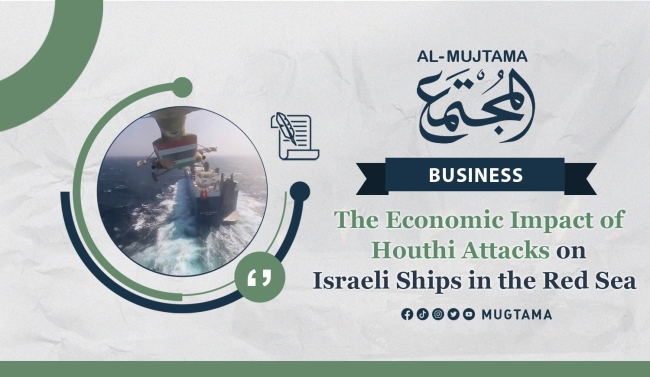The Economic Impact of Houthi Attacks on Israeli Ships in the Red Sea Featured
The Houthi Attacks
On November 19, the Houthi group targeted multiple ships related to Israel as a way to pressure them to stop the war on Gaza. This not only affected the movement of ships in the region but also led to changes in the plans of navigation companies. Some companies decided to avoid the Bab al-Mandab Strait, which is close to Yemen, and this had an impact on oil prices, causing them to rise.
Impact on International Trade
According to a report by the UNCTAD, global maritime trade saw a decline in 2020 due to the COVID-19 pandemic but started to recover in 2021. However, the Houthi threats in the Red Sea could negatively affect the expected growth in maritime trade. The percentage of global trade passing through the Bab al-Mandab Strait is estimated to be around 10%-12%, but the consequences go beyond that.
Experts predict that transportation costs and insurance for goods and ships will increase, leading to higher prices for goods and services. This, in turn, can have a direct impact on inflation in global markets.
Regional Trade Affected
The Houthi operations in the Red Sea could have a significant impact on regional trade. Countries like Egypt, Jordan, UAE, Bahrain, Morocco, Sudan, and Turkey, which have trade relations with Israel, may face challenges. The Unified Arab Economic Report for 2022 estimates that the region's total foreign trade is approximately $2.6 trillion, with oil playing a major role.
Israeli Economy Takes a Hit
The Israeli economy is the most affected by the Houthi operations. The targeting of tankers linked to Israel has negative effects on both export and import levels. With losses in the tourism sector and expected decline in growth rates, Israeli ports have been impacted, with some becoming empty of ships. Israel will have to find alternative means of transportation, which will increase trade costs and potentially lead to a decline in foreign trade.
Importance of Bab al-Mandab and the Red Sea
The Bab al-Mandab Strait is commercially important because it complements the Suez Canal. Without using Bab al-Mandab, the advantage of the Suez Canal, which shortens distances and reduces fuel and transportation costs, is lost. The strait is crucial for the passage of oil and gas from the Gulf to Asia and Europe, as the Arab region produces about 25% of the world's oil.
Alternative routes to the Red Sea, like the Cape of Good Hope, are limited and result in higher transportation costs due to longer travel times.
Impact on the Suez Canal
The Suez Canal is one of the most important sea lanes for global trade. It significantly reduces the time and cost of maritime transport between Asia and Europe. However, the Houthi attacks on Israeli ships in the Red Sea can have negative effects on navigation in the Suez Canal. This could impact Egypt's foreign exchange earnings, as the canal's revenues are a crucial source of income for the country.
Sources: Al Jazeera


